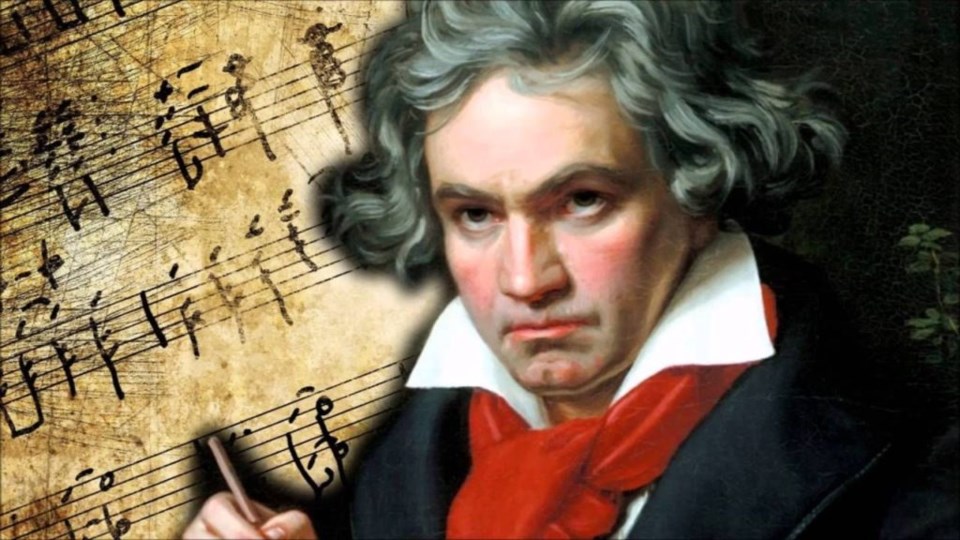
Any survey of western classical music over the past three centuries would undoubtedly place Bach, Mozart and Brahms among the giants.
But for sheer renown, and universal recognition, as the embodiment of classical music itself, the highest niche in the temple of fame must be that of Ludwig van Beethoven.
How else to explain his appeal to people than to recall that on Nov. 26, 1951, Charlie Brown placed Beethoven’s bust on Schroeder’s piano. Indeed, Beethoven’s birthday was a perennial Peanuts event acknowledged in 27 of the 49 years that Schroeder hammered away at his little comic strip piano. As to the enduring nature of his appeal, consider that when Beethoven delivered one of his late piano sonatas to his publisher in 1819, the notoriously difficult Hammerklavier Sonata (Op. 106), he is believed to have said, “Now you will have a sonata that will keep the pianists busy when it is played 50 years from now.”
He was right, but was insufficiently self-admiring to imagine or predict that his music would keep mankind busy, and entranced, for another 200 years after that. It is that miracle, and gift of his music, that we now celebrate.
Beethoven’s life (1770-1827) spanned the transition from the classical period of Haydn and Mozart to the romantic era of Brahms. By the cruellest of ironies, as a composer whose destiny was the world of sound, he had to face gradual onset of deafness from about 1798, developing into complete deafness by 1817. As recounted in Tom Allen’s The Missing Pages, which Music Niagara presented recently, when Beethoven was no longer able to communicate with his visitors, he began to use conversation books for them to write down their questions and remarks. Despite such affliction, he persisted to the end, composing from inside his mind and soul.
Were it not for a relentless pandemic dominating our consciousness, a far greater awareness would now prevail about the musical significance of 2020, kindled by an abundance of international festivals and concerts in honour of the 250th anniversary of Beethoven’s birth. Sadly, however, most of these have been cancelled or postponed. Nonetheless, celebrating him was a priority for Music Niagara this year, as evidenced in The Missing Pages and in this week’s Ludwig in Vienna – Three Pearls, which will be followed by Beethoven’s Hair on Sept. 27.
Beethoven lived in Vienna most of his adult life, hence the title of our program. This Sunday, Atis Bankas and Victoria Kogan will perform three sonatas for piano and violin, each to some extent representative of his musical development. Opus 12, No. 1 (1798) is elegantly classical, but is distinctly his voice. Op. 30 No. 6 (1801-2) has the maturity, melody and grace that we associate with his other well-known sonatas for these two instruments, the Kreutzer and the Spring, both composed about the same time. The third work, Opus 96, No. 10 (1812), has a warmth and depth, and sadness, not evident in the earlier works, foreshadowing in parts the deeper and darker reaches of his later music.
This program will be aired on the Music Niagara website, or on Music Niagara’s YouTube Channel on Sunday, Sept. 20 at 4 p.m.
Before leaving this tribute to Beethoven, I wish to pay my fond last respects to Ted Walden, who died in Niagara-on-the Lake last July. A retired lawyer, he lived here for some time and, most significantly, was an accomplished Beethoven scholar who published My Immortal Beloved, a book investigating the identity, yet to be settled, of a woman Beethoven cherished, to whom he wrote the famous letter of the book’s title.


